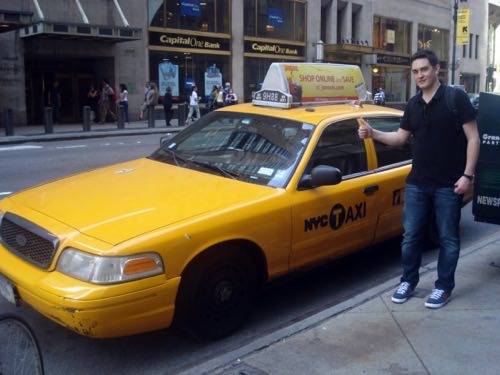
New York is one of the few places in the world where you can still raise your hand and reliably flag a taxi. Now, thanks to recent changes by regulators, it’s become one of many places where you can also tap an app on your smartphone instead.
Hailo, a London-based company which recently set up operations in New York, got approval from the city’s Taxi & Limousine Commission today to offer its e-hailing app, CEO Jay Bregman said at a panel at the TechCrunch Disrupt conference this morning. Uber Technologies, a San Francisco-based company which had previously tangled with city bureaucrats over a taxi-hailing service, received approval last week.
(See also: Lyft & Uber Win Small Victory In Internet’s War With Taxi Industry)
Meanwhile, SideCar saw some of its drivers, whom the TLC views as unlicensed limo drivers, stopped by police and their vehicles impounded, leading to a testy exchange between Ashwini Chhabra, a deputy commissioner, and Sunil Paul, CEO of the on-demand transportation company.
SideCar has sought to have its mobile app, which connects drivers with passengers, categorized under regulations applying to ridesharing service. SideCar calls the fee passengers pay a “donation” and argues that its service is like a friend offering a friend a ride, even though drivers and passengers typically don’t know each other.
“Sharing is not a crime,” Paul said.
“Sharing” has become a buzzword used by services as varied as Airbnb, the lodging marketplace, and TaskRabbit, the contractor-finding service, to describe their offerings, which allow people who have a resource like a spare room or extra time to find buyers for it. SideCar suggests that the empty seats in drivers’ cars are a similar resource. But under Paul’s definition of “sharing,” almost any transaction where people provide a good or service in exchange for money could be defined as “sharing.”
(See also: Regulators vs. Uber & Friends: The Final Battle For Taxi Domination?)
Chhabra, the TLC commissioner, made it clear that it views SideCar as a taxi service.
This isn’t the first time Paul has tangled with regulators. SideCar drivers also saw their cars impounded in Philadelphia earlier this year, and SideCar is the lone holdout among the companies cited by the California Public Utilities Commission for breaking public-safety rules for transportation companies in that state.
As a result, Uber is offering a SideCar-like service where drivers provide their own vehicles, unlicensed as taxis or limos, as is Zimride, whose Lyft service is similar to SideCar.
Bregman, the Hailo CEO, had the best line of the panel where he, Chhabra, and Paul spoke: “You can be disruptive without being abrasive.”
He has a point, since he’s been able to win over regulators where Paul’s combative tactics have—so far—failed.
Photo courtesy of Flickr user n8kowald, CC 2.0

















